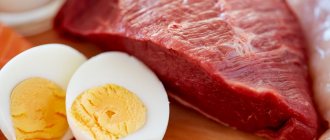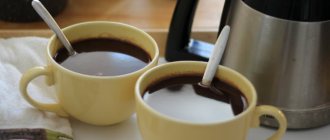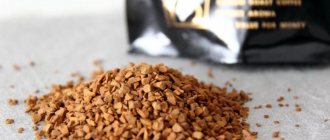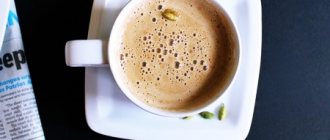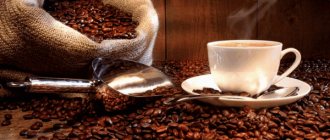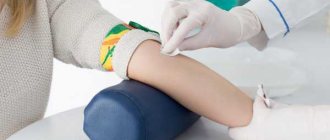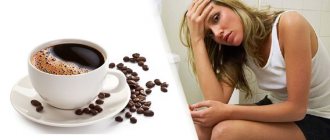Link between caffeine and heart disease
Tachycardia, one of the types of arrhythmia, increases when drinking coffee, since the alkaloids in its composition cause the blood vessels to constrict, which leads to an increase in the number of contractions per minute.
Doctors previously recommended that patients with tachycardia completely eliminate coffee if they have cardiac arrhythmias, but recent studies show that as the number of contractions increases, the rhythm may not change. Here we can conclude that a person’s well-being depends more on the amount of coffee consumed per day than on caffeine specifically.
Moreover, the antioxidants contained in grains benefit the body by preventing aging and helping to remove harmful substances. Their quantity directly depends on the degree of roasting - the stronger, the less antioxidants remain.
Lightly roasted beans contain 3.5%. There is much more in green coffee, so people with cardiovascular problems are recommended to drink green coffee rather than black coffee and in an amount of no more than 3 cups per day.
Rules for drinking coffee for arrhythmia
By following some simple recommendations, you are guaranteed not to harm yourself. But in any case, listen to your feelings and focus not on general advice, but solely on your body.
- Do not drink coffee on an empty stomach, especially if you are not going to have breakfast in a few minutes. After sleep, the body is slightly weakened, and tachycardia may occur.
- Try adding milk, cream or lemon to your drink to slightly reduce the caffeine concentration.
- Get into the habit of drinking your favorite drink with water to thin the blood so it's not as thick, which will help reduce the likelihood of blood clots.
- Try to give up caffeine at times when your body is weakened: when you are sick, stressed, lack of sleep or jet lag.
If you drank coffee and feel arrhythmia, drink water or milk, lie down, try to breathe deeply. This usually goes away within 20 minutes.
Is it possible to drink sweet coffee if you have arrhythmia?
The peculiarities of the effect of coffee with sugar on the body during arrhythmia should be explained separately. As long as you add a little sweetness (like a couple of spoons of sugar per glass of latte or Americano), you're fine and don't have to worry. But if you like a very sweet drink (for example, 3 heaping spoons per 250 ml of liquid), you should be careful. The fact is that high blood sugar levels in the presence of caffeine stimulate the heart to beat even faster, blood pressure rises, metabolism and the pattern of enzyme production are disrupted.
Important: in some people, with arrhythmia, blood pressure drops quite sharply. In this case, it is acceptable to drink very sweet and strong coffee to lift it. Experts do not recommend getting carried away with them, but a couple of cups a day is acceptable, and this will not provoke an attack of arrhythmia.
Latest research
Is it possible to drink coffee if you have heart arrhythmia? A study conducted in the USA clearly shows. It involved 2 groups of people with cardiovascular diseases. Doctors forbade the first group to drink coffee, while the second group was allowed to drink it in any quantity.
During the experiment, only 2% of people - most of them belonged to the first group, who did not drink coffee at all or drank it rarely.
This can be explained by the fact that caffeine stimulates the central nervous system, causing it to work more actively and produce impulses. Thanks to this, all processes in the body go faster and more smoothly.
Video: How coffee affects the heart
The Heart and Diabetes Institute in the USA also proved that arrhythmia can be treated and controlled with small doses of caffeine-containing drinks, so arrhythmia and coffee are not related in terms of negative consequences for the body.
Previously, it was believed that people with atherosclerosis, in which fatty deposits from cholesterol form on the walls, were prohibited from drinking coffee. But after detailed research, it turned out that caffeine has a positive effect on metabolism, including the processes of fat breakdown. In this case, it is important to control the intake of healthy fats and stimulate metabolism.
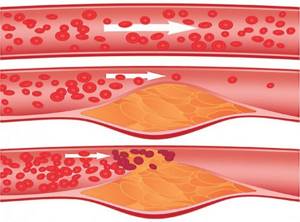
Useful products for arrhythmia
Proper eating is the key to health. Therefore, you should adhere to the following rules:
- 1 it is never recommended to sit down at the table if you don’t feel like eating;
- 2 food should not be taken in an excited state or in a bad mood, immediately after cooling or overheating;
- 3 when eating, it is best to focus on its usefulness, and not be distracted by reading, talking or watching TV;
- 4 food must be chewed thoroughly;
- 5 in case of arrhythmia, the volume of fluid consumed should be reduced by half;
- 6 you should stop eating when you still feel a little hungry;
- 7 do not take food either cold or very hot;
- 8 be sure to split your meals into 3-4 times;
- 9 plant products in the daily diet should be 50-60% of the total amount, carbohydrates up to 20-25%, protein 15-30%.
Useful gifts of nature for arrhythmia include:
- pear, which has an invigorating and refreshing effect, can reduce tension, improve mood, promotes food digestion, and normalizes heartbeat;
- serviceberry is a shrub that has excellent anti-inflammatory and anti-atherosclerotic properties, is a capillary-strengthening agent, helps after a heart attack, reduces blood clotting, relieves vascular spasm, prevents the development of thrombosis, improves nerve conduction of the heart muscle, strengthening it;
- plum - lowers blood cholesterol and strengthens the walls of blood vessels;
- raspberry - as a remedy that perfectly strengthens the walls of blood vessels, reduces blood pressure and cholesterol levels, contains organic acids, tannins, pectin, vitamins B2, C, PP, B1, carotene, iodine, potassium, folic acid, magnesium, sodium, iron and phosphorus;
- red pepper and tomato, which have a beneficial effect on the walls of blood vessels and normalize the functions of the cardiovascular system;
- rosemary, which helps improve low blood pressure and strengthens blood vessels
- all types of currants containing vitamins: B1, PP, D, K, C, E, B6, B2 and oxycoumarins - substances that reduce blood clotting, and which are also effective for the prevention of thrombosis and as a means to lower blood pressure, improving hematopoietic processes and toning the work of the heart;
- apricot - improves the functioning of the cardiovascular system;
- cucumber seeds – remove cholesterol and perfectly clean the walls of blood vessels from the inside;
- watermelon - removes excess cholesterol;
- melon - removes cholesterol from the blood;
- turnip is an excellent remedy for calming a strong heartbeat;
- beets are a vasodilator and effectively reduce blood pressure;
- parsley is a diuretic necessary for arrhythmia;
- grapes - eliminates shortness of breath and swelling, improves heart rate and tone of the heart muscle, “cleanses” the blood;
- corn - reduces cholesterol deposits;
- apples - reduce the risk of developing cancer and heart disease, promote weight loss, reduce swelling, improve digestion and normalize blood pressure, due to the content of plant fiber and vitamins;
- avocado - contains a complex of vitamins: E, B6, C, B2 and minerals, copper, iron and enzymes that prevent the development of anemia and help in the absorption of nutrients necessary for the functioning of the heart;
- cabbage and potatoes are a source of potassium and normalize the functions of the heart muscle;
- grapefruit - rich in glycosides, vitamins C, D, B1 and P and plant fiber, which help regulate physiological processes in the body, improve heart function, and normalize digestion;
- pomegranate helps lower cholesterol and thins the blood;
- flaxseed oil, which is so necessary for arrhythmia and rich in monounsaturated fats, which prevent blockage of blood vessels;
- cereals rich in instant fiber, which prevent the absorption of cholesterol;
- Lentils and red beans contain plant fiber and potassium, which strengthen the heart;
- beans rich in flavonoids, fiber, iron and folic acid;
- pumpkin containing beta-carotene, vitamin C and potassium, which normalize water-salt balance and reduce blood pressure;
- garlic, which contains nitric oxide and hydrogen sulfide, which reduce vascular tone;
- broccoli is rich in vitamins C, B and D, potassium, magnesium, iron, fiber, phosphorus and manganese;
- fish is a natural source of Omega-3 acids;
- Wheat germ oil containing oleic acid, alpha-linolenic and linoleic acids.
Unconventional methods of treatment
Alternative therapy is a treasure trove of treatments for heart disease in all possible ways and methods. For this, treatment is used with herbs, substances of animal, mineral and other origin, etc. These include:
- hawthorn – “bread of the heart”, which eliminates arrhythmia and relieves heart pain, increases blood circulation, lowers cholesterol;
- yarrow, in the form of juice, used for palpitations;
- rose hips - vitamin remedy;
- clay – which is rich in quartz and aluminum oxide, helps with increased nervous heartbeat;
- copper, in the form of copper applications, is effective against attacks of arrhythmia;
- Bee honey helps with severe heart diseases, weakened heart muscles, and high cholesterol in the blood;
- raw ox heart;
- a mixture of lemon, honey, apricot kernels;
- infusion of viburnum with honey;
- a mixture of lemons, honey and dried apricots;
- onion + apple;
- peppermint;
- a vitamin mixture of lemons, dried apricots, raisins, walnut kernels and May honey;
- asparagus
Dangerous and harmful products for arrhythmia
If you have arrhythmia, you should avoid:
- fatty meat;
- lard;
- sour cream;
- eggs;
- strong tea;
- coffee;
- hot and salty seasonings and spices;
- regular chocolate, due to its high sugar content and high calorie content, which contributes to weight gain;
- products that contain preservatives, GMOs and growth hormones that provoke the development of cardiovascular diseases;
- not fresh or artificially grown products;
- products that have been fried, smoked or deep-fried.
Attention!
The administration is not responsible for any attempt to use the information provided, and does not guarantee that it will not harm you personally. The materials cannot be used to prescribe treatment or make a diagnosis. Always consult a specialized doctor!
Tatyana Eliseeva chief editor of the Food+ project
Ask a Question
Rating:
3
/10
Votes: 1
Usefulness of material 3
Reliability of information 0
Article design 0
Rules for drinking caffeinated drinks for people with arrhythmia
1 – 2 liters of coffee per day can cause disturbances in the well-being of even the healthiest person. There are practically no people who drink so much of it. The fact is that too much strong drinks can not only disrupt your heart rate, but also negatively affect the digestive and nervous systems.
As a result of roasting grains, acids are formed that can affect digestion and the state of the gastrointestinal tract. If you continue to drink the drink, gastritis and even peptic ulcers are possible. The situation is aggravated by the fact that caffeine provokes dehydration, to which the pancreas reacts poorly, and this is a more real problem than arrhythmia after coffee.
Therefore, if you have any health problems, you should adhere to the following rules:
- Always focus on your own well-being and control the dosage of caffeine-containing drinks.
- Do not exceed the number of cups of espresso you drink. The optimal dose per day is 3 cups, maximum 5.
- Add milk or cream to espresso to reduce the harmful effects of acids.
- If you have arrhythmia, you can drink coffee if you drink a glass of water before each cup.
For those people who do not drink espresso every day, arrhythmia from coffee may be more pronounced. In this case, you can drink it alternating with water to reduce the concentration of active substances.

Coffee and alcohol turned out to be the main triggers for atrial fibrillation
Author:
therapist Ukrainian Andrey
1 minute
1476
Most often, attacks of atrial fibrillation are provoked by alcohol and coffee. Both of these risk factors can be influenced. The results of the American study were published in the journal Heart Rhythm.
Atrial fibrillation (atrial fibrillation) is a heart rhythm disorder in which the atria contract at a high frequency and in a chaotic rhythm. People do not always know that they have developed such an arrhythmia; they usually only sometimes feel some irregularity in their heart rhythm. This arrhythmia is a risk factor for ischemic stroke. Heart rhythm disturbances may be permanent and may develop periodically.
In the new study, researchers analyzed data from 1,295 patients with paroxysmal atrial fibrillation. The authors identified the main lifestyle factors that cause attacks of this arrhythmia, including caffeine and alcohol consumption, as well as exercise.
The study looked at 11 possible triggers for paroxysmal atrial fibrillation: alcohol, caffeine, sleep deprivation, exercise or lack thereof, cold drinks and food, high sodium in the diet, large meals, dehydration, and lying on the left side.
About three-quarters of the study participants reported that at least one of these factors caused them to experience an arrhythmia attack periodically or every time. Alcohol was cited by 35% of patients, followed by coffee consumption (28%), exercise (23%) and lack of sleep (21%).
Scientists believe that, with a high probability, these factors do not cause arrhythmia, but simply make its symptoms more expressive. They noted that this study does not show whether lifestyle changes, such as avoiding alcohol or caffeine, improve atrial fibrillation.
“Many, if not all, triggers for atrial fibrillation are modifiable, and we think theoretically patients have a chance to influence the likelihood of seizures occurring,” said study co-author Gregory Marcus of the University of California.
Deepak Bath, a cardiologist at Brigham and Women's Hospital who was not involved in the study, noted that caffeine's effect as an arrhythmia trigger is still controversial, although he has seen it in many patients. He added that the potential for patients to actually use the new study's findings makes it even more important.
Causes of arrhythmia and how it relates to caffeine
It is possible to link coffee consumption and heart arrhythmia. Most often it is caused by the following reasons:
- imbalance of electrolytes in the blood - potassium, magnesium, calcium and sodium;
- changes in hormonal levels are especially pronounced in women during menstruation;
- smoking and associated hypoxia;
- if a person snores during sleep, then he also has a problem with the supply of oxygen to tissues, which can affect cardiac activity.
You can reduce the amount of microelements not only with caffeine, but also with weight loss teas, diuretics, and transit agents to normalize intestinal function (they remove fluid from the body and cause dehydration).
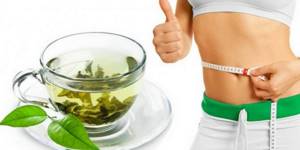
Therefore, every person who is bothered by periodic heart rhythm disturbances can guess the causes of their problem.
Coffee for atrial fibrillation - the most dangerous of all types - can also be consumed in regular dosages. Alkaloids do not have a direct effect on the heart muscle. Negative consequences are possible if a person has a tendency to high blood pressure.
All the pros and cons
Scientists are divided into two camps regarding whether you can or cannot drink coffee if you have arrhythmia:
- some argue that drinking any strong drinks or drinks containing caffeine provokes a surge in pressure and the appearance of tachycardia, which negatively affects the condition of the core;
- others are confident that nothing bad can happen to the cardiovascular system from a few cups of weak drink.
Today it is possible to give a relatively objective answer to this question, since a lot of research has recently been carried out on this matter. The results give us the right to assert that arrhythmia is not a contraindication to drinking coffee in small quantities.
Read also: Life-threatening arrhythmias
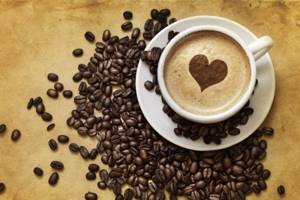
The following factors support the fact that heart patients can drink coffee in limited quantities:
- Coffee beans contain antioxidants and beneficial compounds that help prevent the risk of heart disease;
- coffee improves endothelial function, which helps normalize the functioning of the heart muscle.
The effect of sugar on heart rate
White sugar in large quantities disrupts the functioning of the body by overloading the organs of the digestive system, especially the pancreas. In this case, the following happens:
- lack of digestive enzymes makes the blood thicker, which makes the heart beat faster;
- the kidneys are not able to filter blood that is too thick, so the adrenal glands are forced to increase the amount of adrenaline, which increases the frequency of strokes;
- Blood pressure rises, again due to the kidneys and adrenal glands.
The sugar molecule is very large and does not pass into the smallest capillaries. If you continue to consume a lot of sugar, there is a risk of impairing blood circulation in the extremities and even causing tissue necrosis, which is typical for people with diabetes.
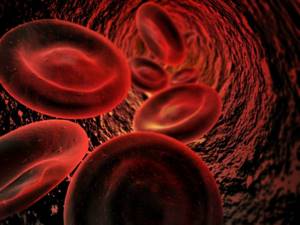
To reduce the burden on the gastrointestinal tract, it is recommended to consume no more than 1 coffee spoon of sugar per cup of espresso.

